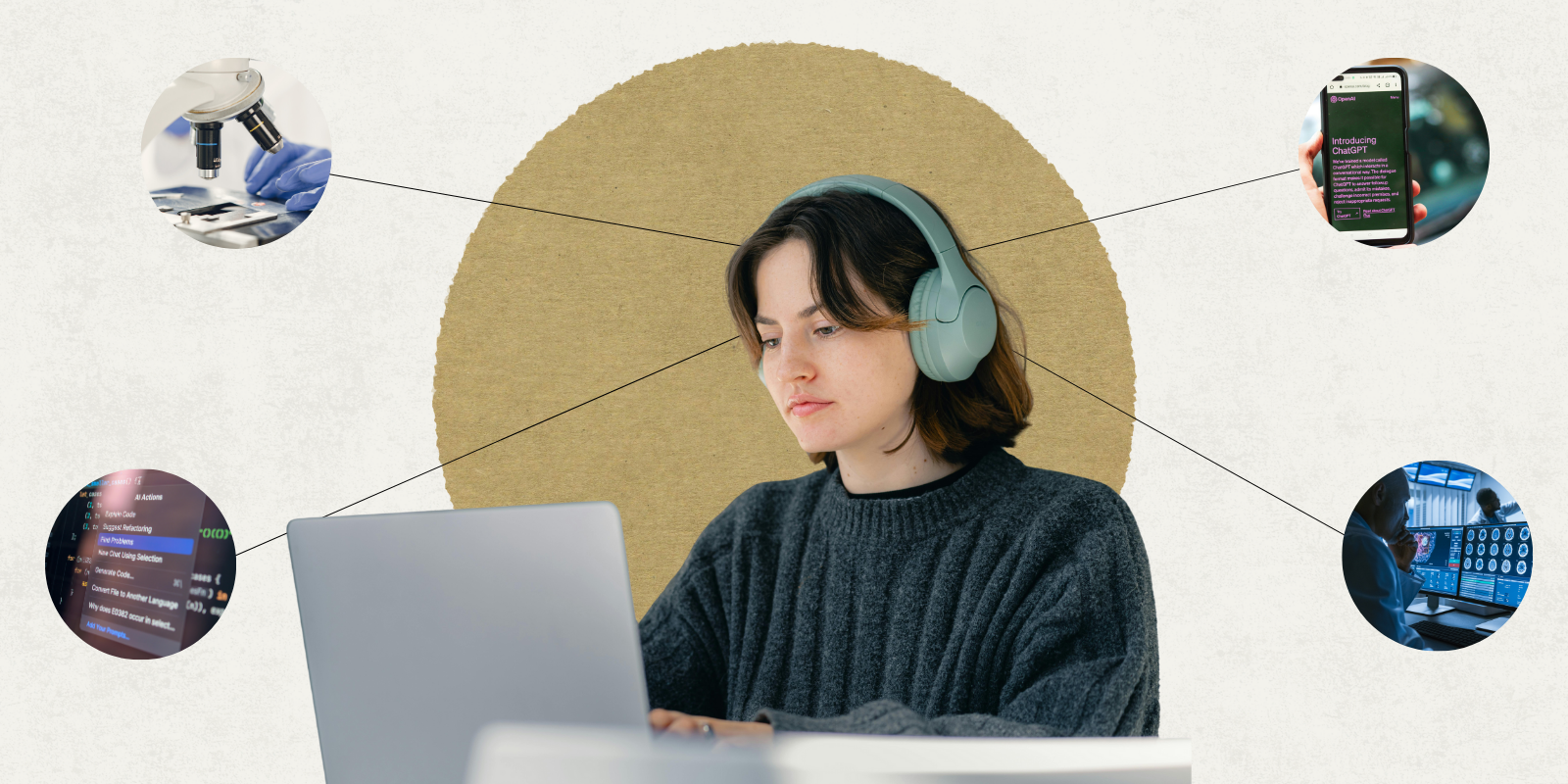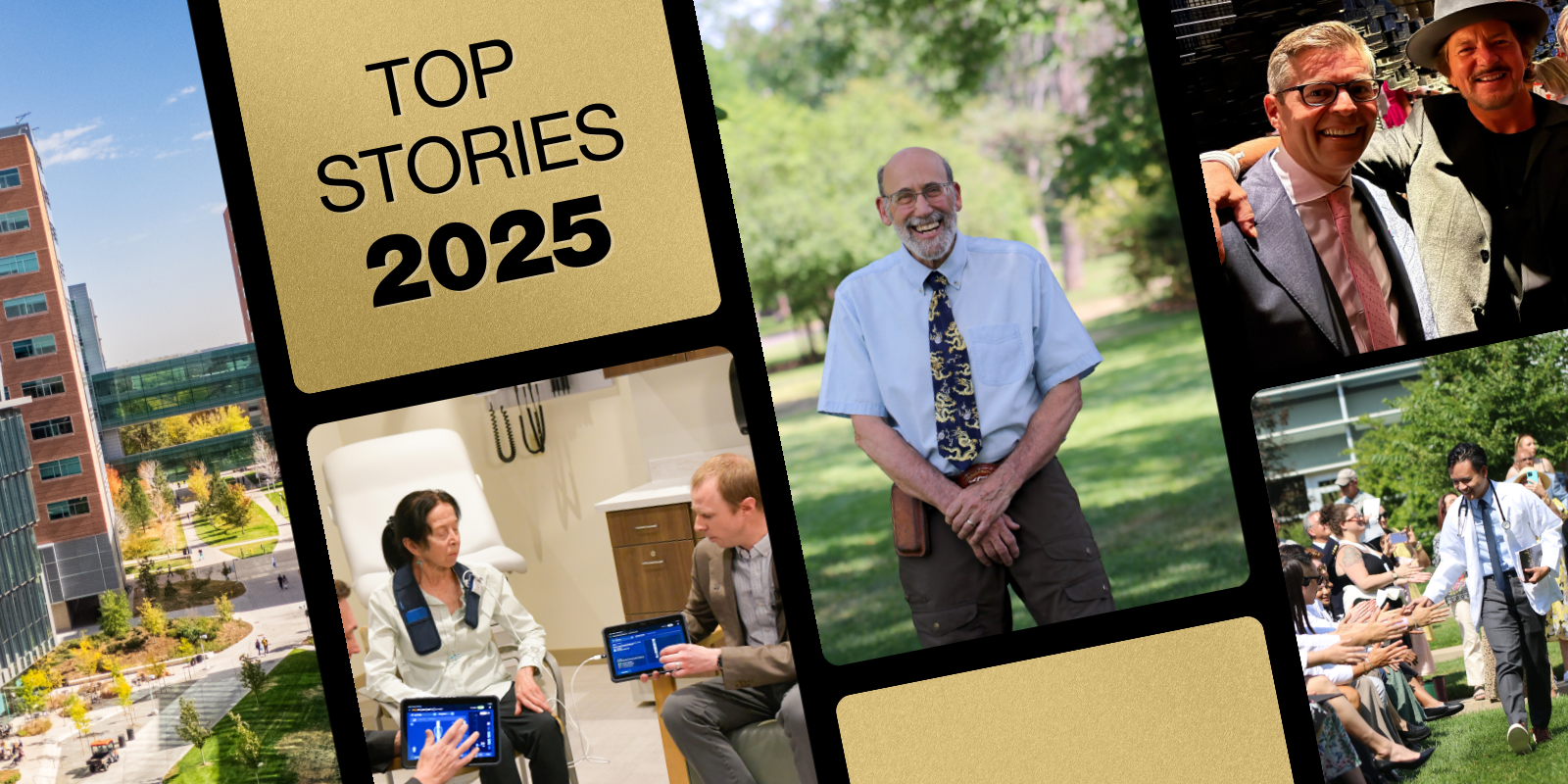Where did you grow up and what sparked your interest in medicine?
I'm originally from Algeria in North Africa. My parents and I moved to the United States in 1998 when I was two years old, and I've been in Denver ever since.
I’ve always been fascinated by science and the human body. As an undergraduate, I participated in the Undergraduate Pre-Health Program. We learned about being physician leaders and we got to meet a lot of the leaders on the CU Anschutz Medical Campus. That was exciting — to see that you can be a doctor and share your time between seeing patients and doing other things like research and quality improvement and mentorship.
Mentorship is one of my passions, so realizing that I could do that as a doctor inspired me to go into medicine, especially since I come from a community where no one else has gone to medical school before. Being a first-generation Algerian-American really shaped my desire to want to become a doctor and hopefully help more people from my community do so in the future.
Speaking of mentorship, have you connected with any mentors at CU?
There's a FirstUp program within the Office of Diversity and Inclusion, which is a mentorship program for first-generation students. They connected me with two mentors: an attending and a resident, both first-generation medical professionals. One is local and the other is not, but being able to grab lunch with the resident and ask her for advice has been great. When I was an undergrad I was placed in an internship with Amira Del Pino-Jones, MD, associate professor of Medicine, who has continued to be a mentor, as well as Shanta Zimmer, MD, the senior associate dean for Education and the associate dean for Diversity and Inclusion.
What has it been like starting medical school in the middle of a pandemic?
Starting med school during COVID was tough. We were lucky in that we did get the opportunity to start the year going to anatomy lab, and some of our small groups were in person, but by the end of 2020 we had moved completely online. I learn best in a classroom; going to lectures and being in an environment where you can see other people learning helps me stay focused, so it was difficult to sit in my room on Zoom for hours a day listening to lectures and then stay on the computer to study afterwards. It was also hard from a social aspect. I was grateful that I had my family here — I can't imagine what it must have been like for students who moved here to start school on their own.
When we finally got to come back to campus and the whole class was in one lecture hall together — that was a real morale booster!
You’re starting clinicals this year — what are you most looking forward to?
I’m both excited and nervous, as this will be my first time living away from home! I’ll be moving to work at the Colorado Springs Branch, which has a longitudinal integrated curriculum. That means you do all the different rotations at the same time rather than a few weeks at each one. The idea is that you have patients you can follow longitudinally throughout the year. So, if you have a pregnant patient, you can follow her from her prenatal appointments to her delivery and then afterward through her postnatal care and maybe even be there for the baby's first pediatric visits. When I was applying to CU, I spoke with Erik Wallace, MD, FACP, who's the associate dean of the Colorado Springs branch, and he had such great things to say about it. And the students I've talked to who have gone through that program rave about it!
I'm also just excited to finally be able to work with patients and learn the practical side of working as a doctor.
Looking back on your medical school experience so far, what really stands out?
Honestly, I think our class has some of the best people I've ever met. They're all so caring, and you can really feel a sense of community, even with so much of our first year being remote. That’s something that drew me to CU in the first place — it seems like a school that tries to build a community-based and compassionate environment.
I also had the opportunity to be a prospective student rep last year, which meant I was involved in the pre-interview process for students who were applying to join the class of 2025. That was one of the best experiences so far. I've already learned so much, it was great to be able to ask myself, “What do I wish someone had told me when I was going through this process?” Some of those people even reached out afterward to meet again or ask for advice. I'm glad I was able to make a positive impression on someone.
It sounds like you’re already putting your mentorship skills into practice! Do you expect to do more of that as you move into your medical career? And have you made any decisions yet regarding a specialty?
I've always liked internal medicine, and I'm interested in women's health, so that's something I want to incorporate no matter what specialty I go into. But I'm trying to stay open as I go into this clinical year to see what I'm drawn to. Regardless, I know I want to do something in academic medicine in the future, because I think that gives me the best opportunity to work in mentorship and medical education.
One thing I’ve experienced, which I think is pretty standard across the academic medicine realm, is that there isn't a lot of representation in terms of diversity for different ethnic backgrounds or races. That's been a little hard; I haven't been able to find many Muslim or hijab-wearing mentors. Thankfully I’ve been able to fill that gap by connecting with classmates who are in the same position. So, that’s something I hope to help fix in the future — offering more support for Muslim women and women of color who are going through the medical education system without having any family or community background in it.
Finally, what advice would you give to prospective medical students?
I always tell people this path is challenging, but I couldn't be happier getting to pursue something I've dreamed of doing for such a long time. Also, the people you surround yourself with can make it into a much more enjoyable experience, which is why I’m happy to be where I am.




